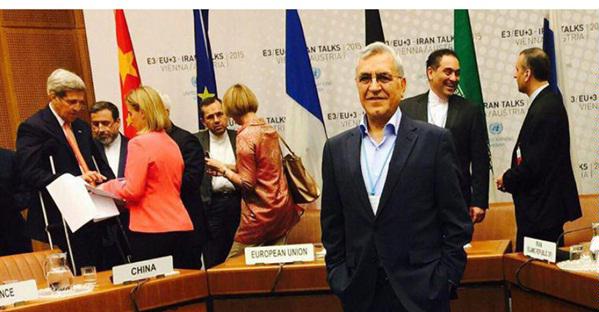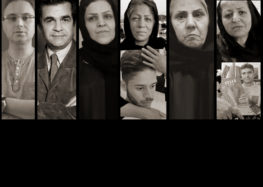Iran’s Intelligence Minister Forcefully Rejects Espionage Charges Against Nuclear Team Aide

A few days after an Iranian Appeals Court upheld a five-year prison sentence against a member of Iran’s nuclear deal-negotiating team, Intelligence Minister Mahmoud Alavi insisted that the defendant, Abdolrasoul Dorri Esfahani, was innocent.
“The authority in charge of matters concerning espionage is the Intelligence Ministry’s counter-intelligence division, and as far as this division is concerned, Mr. Dorri Esfahani has not committed any act of espionage,” Alavi told the semi-official Mehr News Agency on October 11, 2017.
“In fact, he wisely resisted plots hatched against him by foreign intelligence agencies and cooperated with the Intelligence Ministry’s counter-intelligence division,” he added.
An Appeals Court upheld the five-year prison sentence issued against Esfahani, an Iranian-Canadian dual national, on October 8.
“Mr. Abdolrasoul Dorri Esfahani, the son of Hossein, is a dual national accused of espionage and handing information to foreigners,” said Judiciary Spokesman Gholam-Hossein Mohseni Ejei on October 8, 2017.
“He had connections with two spy services and after the court investigated, he was sentenced to five years in prison,” claimed Ejei. “There was a challenge and the Appeals Court upheld the five-year sentence.”
Ejei added that Esfahani is also facing financial corruption charges, but no indictment has been issued.
Esfahani represented the Central Bank of Iran during the talks on the country’s nuclear program between Iran and the six world powers known as the P5+1. After the final deal was struck in July 2015, he advised the Rouhani government on implementing the deal’s financial provisions.
In February 2016, President Hassan Rouhani publicly recognized Esfahani for his role in the talks.
Alavi first denied Esfahani’s alleged involvement in espionage in a statement to Parliament on October 25, 2016.
A year later, Mojtaba Zolnour, a conservative member of the Parliamentary Committee on National Security and Foreign Policy, claimed other members of the negotiating team led by Foreign Minister Javad Zarif have also been accused of espionage.
“Unfortunately, Dorri Esfahani is not the only member of our country’s negotiation team who committed these violations. There were others. One of them is in Canada and another is also abroad,” Zolnour told the Young Journalists Club, which maintains close ties with Iran’s hardline Revolutionary Guards, on October 13.
Esfahani’s arrest was first revealed by Tehran Prosecutor Abbas Jafari Dowlatabadi on August 16, 2016. Without mentioning him by name, Dowlatabadi said the Iranian-Canadian had been taken into custody a week earlier for “collaborating with the British secret service.”
Two weeks later, on August 28, 2016, Ejei named Esfahani while announcing he had been released on bail.
The five-year prison sentence issued against Esfahani by Judge Abolqasem Salavati of Branch 15 of the Revolutionary Court was announced by Ejei on May 31, 2017.
Shortly after being freed from detention in August 2016, Esfahani gave an interview to BankeMardom (People’s Bank) calling the espionage charges “ludicrous.” Hours later, the interview was deleted.
In an Instagram post on August 31, 2016, Hamid Baeidinejad, who at the time was the foreign ministry director in charge of political and international affairs, rejected the charges against Esfahani as “a blatant insult against Iran’s intelligence and security establishments.”





